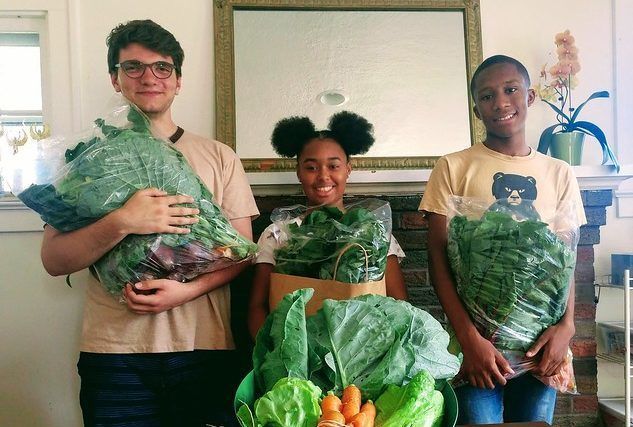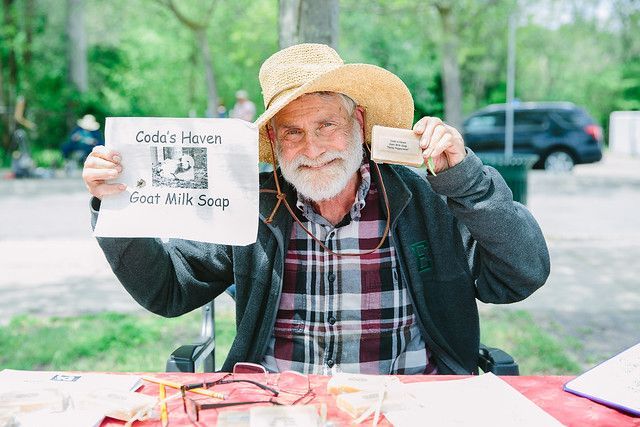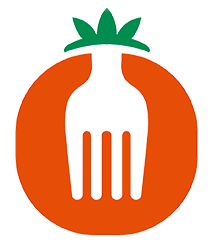Article
Feeding More Than Hunger
CASSIAN LETHE, SNAP-ED, AND THE STRUGGLE TO KEEP COMMUNITY CARE ALIVE
Receiving SNAP (Supplemental Nutrition Assistance Program) benefits is one thing. Knowing how to use those resources most beneficially is another. The role of SNAP-Ed, a federally funded grant program, is to bridge that gap and help people make their SNAP dollars stretch, teach them how to cook healthy meals, and lead physically active lifestyles. In Michigan, SNAP-Ed programs are run through the Michigan Fitness Foundation (MFF) and are present in all counties throughout the state. This program channels valuable resources into local organizations that aim to make a positive impact on the health of their communities, particularly in low-income areas.
Cassian Lethe is the food navigator at Growing Hope and runs the SNAP-Ed program. Each Saturday, Cassian goes to the Ypsilanti Farmers Market (which is run by Growing Hope). It distributes flyers containing information on resources for low-income community members, educates people on how to enroll in SNAP and how their benefits work, and prepares a recipe of the week, along with free samples to hand out. She describes the SNAP-Ed program as “a springboard for people’s agency,” a way for individuals to have their basic needs met, which then gives them the freedom and time to learn new things about food preparation and even grow their own food.
Cassian is passionate about helping people access food assistance because she grew up in a food-insecure household that did
not
access any benefits. She grew up in rural Texas, where she describes it as being very taboo to receive benefits. “You either don’t receive them or you do get them and you lie,” because of a perception that “if you need assistance, you are a burden.” Kids with reduced school lunches would be bullied, and cashiers at stores would harass people when they would pull out an EBT card and take much longer to serve them and check them out.
Because her family was food insecure but refused to receive benefits, Cassian began farming in her early teens as a way to help support her family. She raised cattle to sell at market, showed and sold chickens at 4H, and started researching permaculture, square foot gardening, and anything else that would make things easier for the family–and that would also work around her school schedule, since she was still only 15 when she began completely managing the farm.
At the time, she felt proud of what she had accomplished on the farm and of providing for the rest of her family. Still, she also started struggling with a myriad of health problems, including severe anxiety. At the time, she didn’t connect this to the fact that she was working basically from 6 am to 10 pm every day, and that all of her responsibilities were very high-stakes: if she didn’t provide lunch for her younger brother to bring to school, then he wouldn’t eat; if she burnt dinner, there wouldn’t be dinner; if she weren’t able to bring in enough money, her family wouldn’t have money for basic necessities.
Cassian is passionate about connecting people, through SNAP-Ed, to resources for basic necessities, so they have the time and resources to experiment with new foods and recipes. One of the things she has noticed about the SNAP recipients who take samples from her at the farmers market is that they frequently ask, “Are you
sure
they’re free?” Cassian emphasizes to program participants that the samples are free in multiple ways: the samples don’t cost any money, but they’re also free in the sense that people haven’t lost out on anything if they don’t like the sample. They didn’t waste money, waste food, put out their family, or any of the other things people experiencing food insecurity often worry about.
Fortunately, most people
do
like Cassian’s samples! They almost always run out, and many community members return week after week to try the next thing she has prepared. The recipes focus on ways to incorporate more fruits and vegetables into cooking, with a special emphasis on items people may not be familiar with, such as using beets to make “pink pancakes.” Food-insecure people with children often wouldn’t be able to risk making new foods like this at home; if the child doesn’t like it, then it would be a waste of food. But with the free samples, there’s no risk, and Cassian can immediately see the relief on parents’ faces when the kids seem happy with the sample. The parents then have the ability to take a recipe card with them and feel confident that if they cook this new recipe at home, their family will enjoy it. Through the free samples and accompanying recipe cards, community members can try new foods, gain knowledge about food, and take that knowledge home in an actionable form.
However, the members of the community Cassian serves as the SNAP-Ed coordinator at the Ypsilanti Farmers Market are worried about their future and often ask Cassian if she will have to stop coming to the market because of federal SNAP cuts. They are aware that the federal government's cuts to SNAP and other aid programs will affect them, but no one is yet certain how. Cassian’s worst fear is having to turn people away, because she knows what it’s like to feel like if you try to reach out for help, there won’t be anything there. SNAP-Ed is part of the
something
that she needed growing up, and she values being able to be that something for other members of her community.
Regardless of the federal cuts, Growing Hope will continue to do at least some of its food access work. Cassian explained that Growing Hope is like a field of various produce, where if there is a drought,
some
things will make it through, but not everything. She shared that every time a support system fails, it is the people who are most vulnerable who are hurt the most, and that Growing Hope can’t, on its own, save everyone, even though it would like to. She wants community members to feel safe and secure in the knowledge that they won’t be turned away, but due to the federal cuts, she is unsure if she’ll be able to provide that security anymore.
Cassian repeatedly emphasized how SNAP-Ed, SNAP, and other benefits programs work together to make the community as a whole healthier, and how the government’s recent cuts are relevant to us all:
“We’re not just individual points on a map, we’re pins stuck in a corkboard, which are all tied together. [Cutting benefits] will put strain on everyone, even if they don’t think that includes them. You’re going to be experiencing tension. Even if you feel like you’re not in any way tied to these government programs, you still need to go through the effort of advocating for those who do. Even in small ways.”
This post is part of a series by Emma Rose Hardy, a PhD Candidate at the University of Michigan and the Rackham Local Food Systems Intern at Growing Hope. The series aims to highlight the essential role that SNAP and other food assistance programs play in the Washtenaw County local food system.
share this
Related Articles
Related Articles


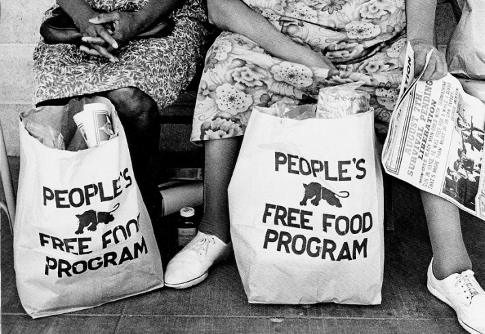
STAY UP TO DATE
GET PATH'S LATEST
Receive bi-weekly updates from the church, and get a heads up on upcoming events.
Contact Us


